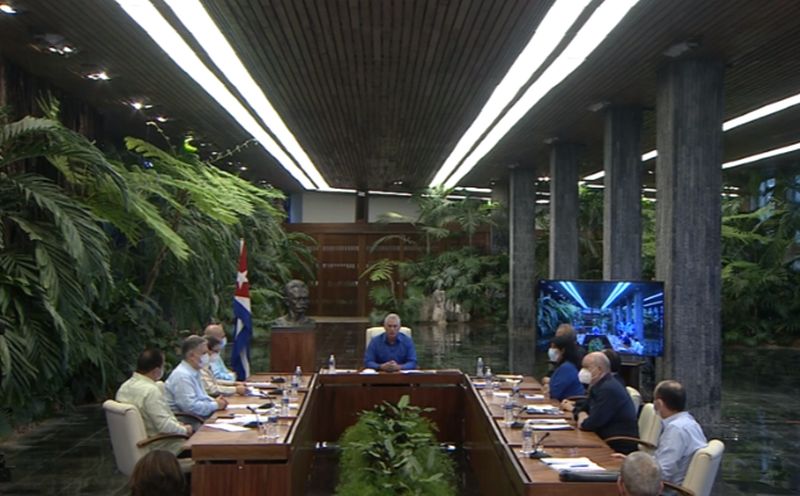
The television appearance of the First Secretary of the Central Committee of the Communist Party of Cuba and President of the Republic, Miguel Díaz-Canel Bermúdez, takes place shortly after the attempts to destabilize order and peace in the island
Cuban President Miguel Diaz Canel and several ministers appeared on National Television and Radio network to brief the population on the economic and epidemiological woes affecting the island.
Cuba woke up on the alert after the destabilizing events reported in various localities on Sunday, which generated the rejection by people from all walks of life.
Crowds took to the streets to voice their support for the Revolution in response to the provocations staged in various towns instigated through social media.
Artists, representatives of political and mass organizations, workers, and people, in general, responded with demonstrations in public spaces.
In his remarks Monday, Diaz-Canel affirmed that on Sunday, an important part of the Cuban people led one of the most historic days in defense of the Revolution by counteracting the provocations that took place.
The President called on the people to respect the country’s order and citizen tranquility with a solidarity commitment in the face of the counterrevolutionary campaign enticed from abroad through social media as part of the unconventional war.
After admitting that it is logical that people feel dissatisfaction, he called on Cubans to define the intentions of those who want to divide us.
The Cuban President strongly rejected the vandalism carried out on Sunday by criminals who broke up stores in foreign currency, stole home appliances, and stoned police forces in a clear expression of vulgar and indecent behavior.
Díaz-Canel denied accusations of alleged calls for violence when he urged the population to reject the acts of destabilization registered on Sunday in several country municipalities.
“We do not call on the people to confront the people, but we call on the people to defend their revolution,” Díaz-Canel clarified in his appearance, in which he specified that the population defended itself against the acts of violence and vandalism carried out by those who initiated the demonstrations.
 Escambray ENGLISH EDITION
Escambray ENGLISH EDITION





Escambray reserves the right to publish comments.